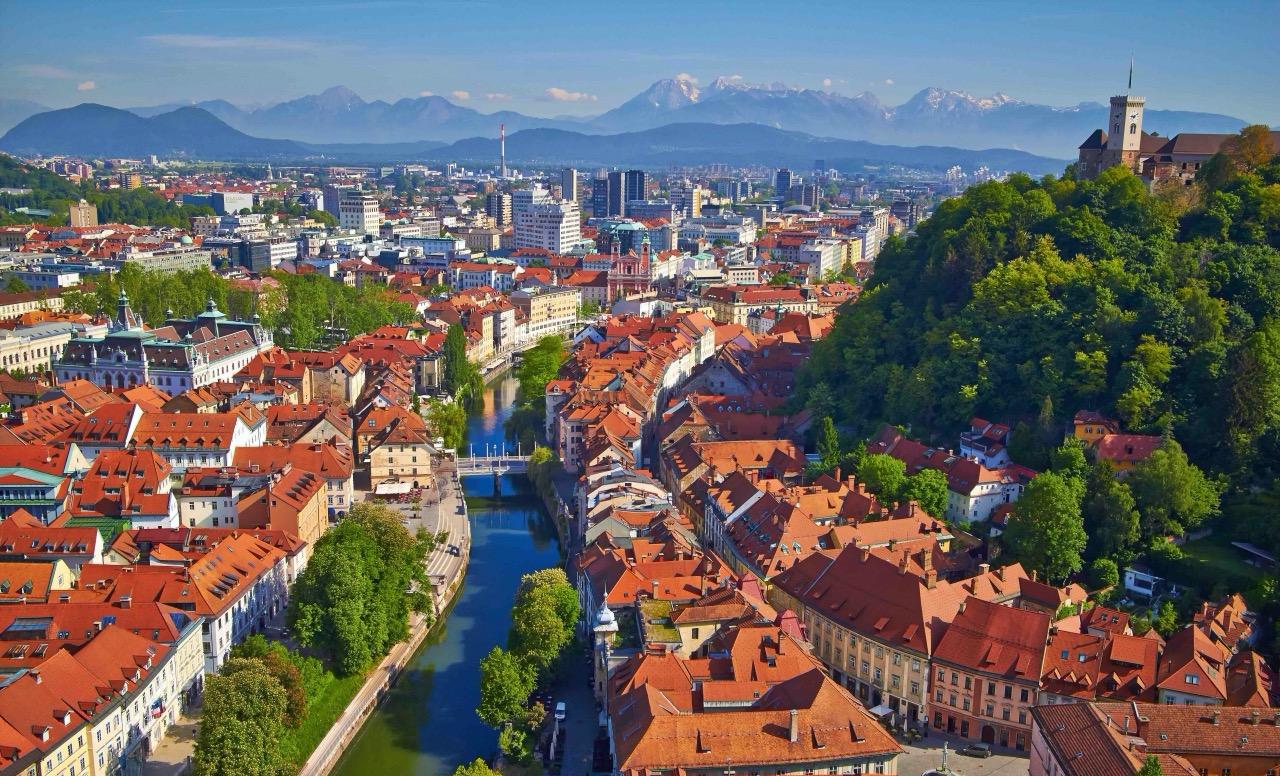According to the Global Network, on the 18th, Ou Jiangan, spokesman of Taiwan's foreign affairs department, responded to Slovenian Prime Minister Yang Sha's remark that "Slovenia is negotiating with Taiwan to set up a 'representative office'" for each other. Ou Jiang'an declared that Yang Sha has been a "friendly friend" of Taiwan for many years, and that he has expressed "insightful insights" on the current international situation, and that Taiwan's foreign affairs department "expresses high welcome and sincere thanks." In this regard, a spokesman for the Chinese Foreign Ministry said: We have noted the Slovenian leader's blatant remarks about challenging the one-China principle and supporting "Taiwan independence." We are deeply shocked and strongly opposed to this.
Slovenia was once the most politically stable country in the former Yugoslavia after independence, except for the 10-day war with the Yugoslav People's Army at the time of independence, Slovenia maintained peace for a long time. Slovenia also belonged to the Western Balkan countries with better economic development in the 1990s, ranking first in per capita GDP among the countries with economies in transition in Eastern Europe, and its economy has maintained steady growth for a long time.

The Slovenian economy's largest import and export partner is Germany, which is one of the results of the impact of Germany's expansion on the economies of Central and Eastern Europe after 1991. The remaining partners include Italy, France, Austria, Croatia, Switzerland, and China ranks sixth among Slovenian importers in 2020, accounting for about 4.3% of Slovenia's imports. The Slovenian economy largely forms the EU's peripheral industrial chain, mainly responsible for providing assembly and components to Germany.
Slovenian industry began to develop from the Austro-Hungarian Empire, of which automobiles, metalworking, chemical medicine, electrical equipment, etc. are the more prominent economic sectors. In 2014, the contribution rate of the automobile industry to GDP was about 10.8%, accounting for 12.8% of Slovenia's total exports. Internationally renowned automakers such as Audi, BMW, DaimlerChrysler, Volkswagen, Ford, Renault, Peugeot, Fiat, Citroen, Toyota and other internationally renowned car manufacturers use slovenian automotive products. The main export markets for automotive products are Austria, Croatia, Hungary, France, Germany, Italy, Mexico, Romania, Spain, Turkey, the United Kingdom, the United States and so on.
Slovenia's economic performance is acceptable, but the political order is becoming increasingly chaotic. After the 2008 economic crisis, five cabinets have failed to complete their terms of office and collapsed early, and political fragmentation, insufficient governance capacity, and corruption are the main manifestations of the relatively chaotic political order. Simply put, the Central and Eastern European countries under proportional representation are more or less fragmented, but Slovenia is more pronounced, with an average of only two years in power, and it is conceivable that they have no time for effective governance. In Parliament, the 2018 parliamentary elections, with nine parties taking seats, and from eurosceptics to the far right, to the left, it is clear that there will not be much consensus.
The prime minister, Janez Janša from the Democratic Party of Slovenia, served as prime minister three times from 2004 to 2008, 2012-2013, and 2020 to the present, and even went to jail after being ousted in 2014. Once a communist, he gradually slipped quickly to the right, and is now a far right, also known as "Slovenian Trump", in fact, in the 2020 US presidential election results, the public also congratulated Trump on his election as president. It can be seen that this public act is a similar figure to Trump. Interestingly, this man is a political ally with Hungarian Prime Minister Orbán, who is almost the most aggressive leader of the EU member states towards China.
The yawnings may be a new battleground to divert attention, as support for Slovenia's current government fell to a record 19 percent in November, and other political parties are expected to be watching. Jansha may take the opportunity to take the initiative to deteriorate relations with China, shaping the identity of an ideological "hero" for political speculation. As for whether the benefits were obtained, we do not know.
For Slovenia, China may have more means to fight than Lithuania, and it can also exert some pressure indirectly through Orbán or the German government. Economically, for example, in the German automotive supply chain, China's refusal to use Slovenian products can also form a certain influence. Most crucially, Jansa's cabinet is likely to have a limited tenure, and there is no consensus on Slovenia's internal China policy, of course, it is difficult to have. In this context, it would be easier to adopt a response to Lithuania, as the Jansa government is less resilient to pressure than the Lithuanian government of Hymonit.
According to a 2015 survey, Slovenian society has a more positive attitude towards China. Slovenia as a whole does not understand China, and even the "16+1 cooperation platform" and "Belt and Road Initiative" of China-EU cooperation are not familiar, but the younger generation generally welcomes Chinese investment, and they believe that China will become the world's largest economy. During the Jansa administration, there was no particularly significant change in the attitude of Slovenian society toward China, and even the Confucius Institute at the University of Ljubljana in Slovenia was one of the first to operate and continues to operate today.
Therefore, if China takes advantage of this confrontational opportunity to deepen Slovenia's understanding of China, it may have positive significance for stabilizing the Central and Eastern European countries in the future. We should not be afraid of confrontation, but we should not blindly confront, and seeking deeper understanding in confrontation is the key to changing the distorted perception of interests.